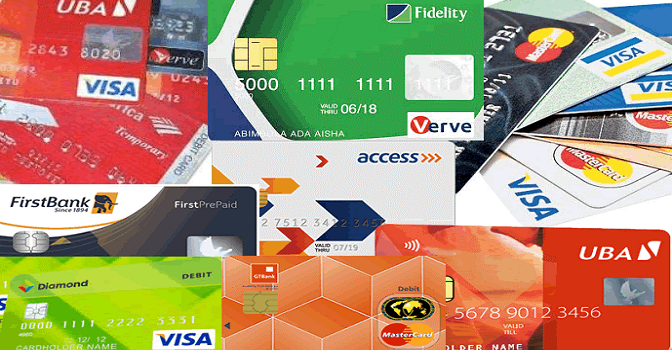International transactions on Nigerian naira cards have resumed, according to announcements from two commercial banks.
United Bank of Africa (UBA) and Wema Bank informed their customers separately that the service has resumed for their naira cards.
The change occurred around three years after numerous banks stopped allowing foreign transactions using Naira debit cards.
The restart is consistent with UBA’s ongoing commitment to offering consumers smooth and improved banking experiences, the bank said in a recent message to customers.
As part of our ongoing efforts to give you smooth and improved banking experiences, we are happy to notify you that all UBA Premium Naira Cards—including the Gold, Platinum, and World versions—can now be used for overseas transactions, the message says.
With greater ease and flexibility, you can now use your Premium Naira Card for regular payments, online shopping, point-of-sale (POS), and ATM transactions worldwide.
It’s a perfect opportunity to rediscover the convenience and prestige that come with being a UBA premium cardholder if you haven’t used your card recently.
Customers can now “pay in dollars” using their naira cards, Wema Bank announced in a recent statement after the breakthrough.
Just now, your Wema Naira Mastercard went worldwide! You may now pay in dollars on all of your favorite international websites, including AliExpress, eBay, and Amazon. YouTube, Netflix, and Spotify,” the bank stated.
The reasons behind the shift in banks
According to Ayokunle Olubunmi, head of financial institutions ratings at Agusto & Co., banks’ decision to reactivate their naira crads for international transactions was bolstered by the increased liquidity in the foreign exchange (FX) market.
He stated that the decision was partly influenced by the reducing premium on parallel market trades and the diminished arbitrage potential.
The chief executive officer (CEO) of Cowry Treasurers, Charles Sanni, also told that the banks’ choice might have been impacted by the thinned-out margin or difference between official and parallel market rates.
Read Also: Obi’s ADC Alliance Gets Backing from Enugu LP Despite Abure’s Stand
According to him, Nigeria has extremely high interest rates, therefore borrowing money to speculate on foreign exchange is discouraged.
The value of the naira has also kept rising in relation to the other foreign currencies. In addition, he said that the Central Bank of Nigeria’s (CBN) new policy regarding the opening of accounts for non-residents, especially Nigerians living abroad, has led to a rise in remittances from the diaspora.
Following the ease of capital repatriation and money transfers, Sanni also mentioned the federal government’s and the CBN’s renewed trust in FX management.
Nigeria has improved its credit rating, cleared its foreign exchange backlogs, and has a “new trading platform, increase in oil prices from geopolitical conflicts, and banks capitalization,” according to the CEO.
International transactions on ATMs and POS channels were also temporarily halted by a number of other banks between July 2022 and January 2023.
The long-term FX shortage, which endangered the existence of important economic sectors, caused the change.
Standard Chartered Bank stopped allowing foreign transactions on its Naira Visa debit card in July.
The First Bank of Nigeria (FBN) announced on September 21, 2022, that it would stop allowing foreign transactions using their Mastercard.
On January 9, 2023, Zenith Bank joined the fight when Guaranty Trust Bank (GTBank) suspended international payments on their naira Mastercard three months later.
Similar actions were taken by Flutterwave, Eversend, and other financial technology providers, who suspended their virtual card services for transactions conducted internationally.
Join Television Nigerian Whatsapp Now
Join Television Nigerian Facebook Now
Join Television Nigerian Twitter Now
Join Television Nigerian YouTUbe Now





